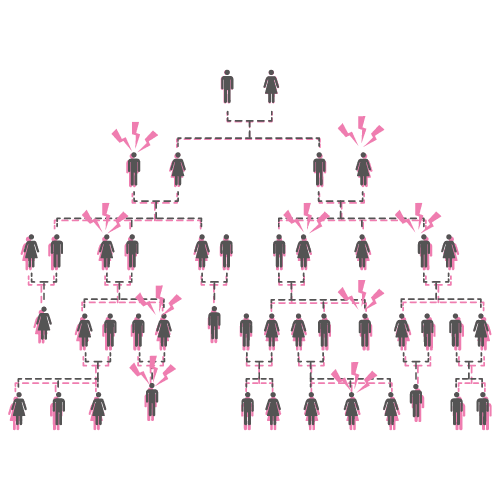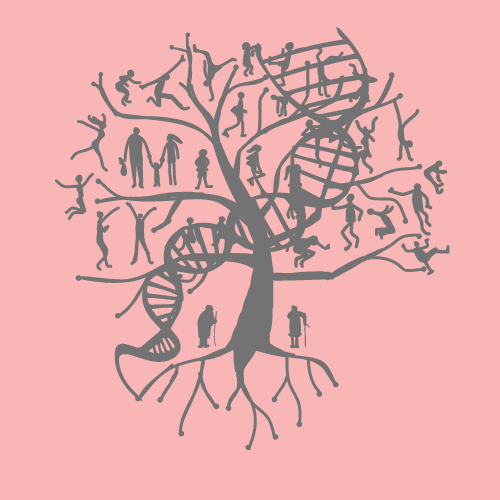Intergenerational or generational trauma is a theory that a trauma that is experienced by for example, a parent or grandparent, can be passed down to future generations because of the way that trauma epigenetically alters the DNA in our genes.
The changes from trauma do not damage the gene (genetic change). Instead, they alter how the gene functions (epigenetic change).

Epigenetics is the study of the effects that environment and behaviour have on genes. Studies have supported the idea that as well as physical inheritance, an ancestor’s exposure to trauma may impact future generations.
In other words, children whose parents experienced trauma are more likely to grow up with a parent who is unstable, emotionally distant, or anxious, and these parenting behaviours may also contribute to trauma that is passed down to another generation.
Epigenetic changes can affect health in several ways.
- Infection: Germs can change epigenetics to weaken your immune system.
- Cancer: Certain mutations increase your risk of cancer.
- Prenatal nutrition: Prenatal environment and behaviour can impact a fetus’s epigenetics.
Trauma is a person’s emotional response to a tragic event (for example, accidents, sexual violence, and natural disasters). Long-term trauma can produce effects such as intrusive memories, avoidance, negative changes in thinking and mood, and changes in physical and emotional reactions.
Researchers have studied several historical cases in which trauma was widespread in populations when people experienced traumatic events like famines, war, and genocide.
Conclusion on Generational Trauma
Intergenerational trauma may exist, but epigenetic science is still young. What is known is that some people are more biologically susceptible to PTSD, that PTSD is prevalent, and that epigenetic changes can be reversed. Together, these factors highlight why more research into intergenerational trauma is needed.
It’s vital to identify and treat trauma—whether it’s generational or not. While medication and psychotherapy are proven therapies for PTSD, individuals respond to treatments differently.



